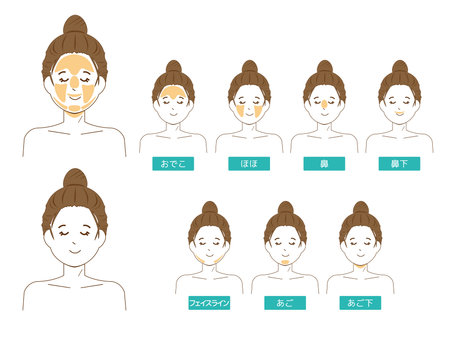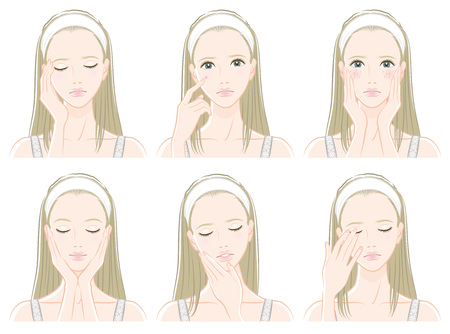1. Introduction: Understanding Skin Ageing in the UK Context
The United Kingdom is renowned for its vibrant, multi-ethnic society, where individuals from a myriad of backgrounds call this island nation home. Living in such a culturally rich environment has allowed me to witness first-hand how skin ageing manifests differently across various ethnicities—a subject both fascinating and deeply relevant as our population continues to diversify. The UK’s unique blend of heritage, climate, and lifestyle nuances means that the one-size-fits-all approach to skincare simply does not suffice. Instead, appreciating the distinct needs and characteristics of each skin type becomes essential for anyone seeking effective anti-ageing solutions. This article explores how our multicultural landscape shapes patterns of skin ageing and why personalising treatments is key to achieving radiant, resilient skin at every age.
Ethnic Variations: How Skin Ages Across Different Backgrounds
Living in the UK, I’ve been continually fascinated by the rich tapestry of cultures and ethnicities that make up our communities. This diversity isn’t just skin deep—it profoundly influences how we age, both biologically and environmentally. In this section, let’s take a closer look at the ways different ethnic backgrounds affect the ageing process, and why understanding these nuances is crucial for crafting effective anti-ageing routines tailored to everyone living in Britain.
Biological Differences in Skin Ageing
Skin ageing is shaped by genetics, melanin content, collagen structure, and oil production—factors that can vary considerably between ethnic groups. Here’s a quick overview of some of the most relevant distinctions:
| Ethnic Group | Key Skin Characteristics | Common Ageing Patterns |
|---|---|---|
| Caucasian (White British/European) | Lighter skin, less melanin protection, thinner epidermis | Earlier onset of fine lines and wrinkles, sun spots, visible sagging |
| Black African/Caribbean | Higher melanin levels, thicker dermis, more sebaceous activity | Delayed wrinkling, but more prone to uneven tone and hyperpigmentation |
| South Asian (Indian/Pakistani/Bangladeshi) | Moderate melanin, oily tendency, robust collagen network | Tendency for pigmentation issues (melasma), later onset wrinkles |
| East Asian (Chinese/Vietnamese/Thai) | Slightly yellow undertones, compact collagen fibres, lower oil production | Fine lines around eyes/mouth, potential for sallowness rather than deep wrinkles |
Environmental Influences Unique to the UK
Regardless of background, living in Britain means dealing with distinctive environmental factors—think frequent rain, limited sunlight, high humidity in some regions and biting winds in others. For many immigrants or those with heritage from sunnier climates, this shift can alter how their skin ages compared to relatives abroad. Air pollution in urban centres like London further complicates matters by accelerating oxidative stress and contributing to uneven pigmentation.
Cultural Practices and Lifestyle Habits Matter Too
I’ve noticed that cultural skincare rituals—whether it’s the use of natural oils among Caribbean families or herbal remedies popular in South Asian households—can play a protective role or sometimes even work against the unique needs brought on by Britain’s weather and lifestyle. It’s a gentle reminder that tradition should meet science for optimal results.
The Takeaway: Embracing Diversity for Better Ageing Solutions
If there’s one thing my personal experiences (and those shared over cups of tea with friends from all walks of life) have taught me, it’s this: recognising these ethnic differences isn’t about drawing lines—it’s about celebrating our individuality so we can each put our best face forward. In the next section, we’ll explore how to weave this knowledge into practical anti-ageing care tailored for life in the UK.

3. British Weather and Urban Influence on Skin Ageing
Living in the UK means experiencing an ever-changing tapestry of weather, from drizzly mornings to rare golden afternoons. The British climate, with its frequent rain, high humidity, and limited sunshine, shapes not just our daily routines but also our skin’s ageing journey. For those of us who have made Britain our home—no matter our ethnic background—urban life and this unique climate combine to create a set of skin challenges that are both universal and subtly distinct across communities.
The notorious lack of sunlight means many residents experience lower levels of Vitamin D, which is essential for healthy skin regeneration. This can leave skin looking dull and more susceptible to premature ageing, particularly among lighter-skinned individuals who may be more prone to photodamage when the sun does appear. On the flip side, people with darker skin tones often have higher melanin levels that offer some natural protection against UV rays, yet they too can suffer from uneven pigmentation and dehydration due to the cold winds and central heating so common in British homes.
City living adds another layer: pollution levels in cities like London or Manchester expose all ethnicities to free radicals that accelerate fine lines, wrinkles, and loss of elasticity. As someone who commutes daily on the Tube and navigates busy streets, I’ve noticed how my skin can feel both congested and parched by day’s end—a sentiment echoed by friends from various backgrounds. The interplay between environmental stressors and genetic predispositions means that tailoring anti-ageing treatments isn’t just about picking products off a shelf; it’s about understanding how our shared environment shapes our skin’s needs.
4. Culturally Attuned Skincare: Aesthetic Approaches for Different Skin Types
Living in the UK—a true melting pot of cultures—means that beauty professionals and individuals alike must appreciate the nuanced differences in skin ageing across ethnicities. Drawing from personal experience, I’ve witnessed how British skincare routines are evolving, embracing both time-honoured heritage wisdom and modern science to offer respectful, effective anti-ageing solutions for all skin types.
Understanding Heritage and Individual Needs
Every ethnicity carries unique genetic traits that influence how skin ages. For example, melanin-rich skin often shows delayed wrinkling but may be more prone to uneven pigmentation or textural changes, while fairer skin tones might develop fine lines earlier but respond differently to certain treatments. Culturally attuned skincare goes beyond generic advice, weaving in rituals, ingredients, and techniques cherished by diverse communities in Britain—whether it’s the use of gentle rice water toners inspired by East Asian traditions or nourishing shea butter rooted in African heritage.
Tailoring Treatments: A Comparative Approach
| Ethnic Background | Common Ageing Signs | Culturally Relevant Solutions |
|---|---|---|
| Caucasian | Fine lines, loss of elasticity | Retinol creams, collagen-boosting serums, SPF daily |
| South Asian | Hyperpigmentation, uneven tone | Saffron-infused masks, vitamin C treatments, sunscreen with added antioxidants |
| African/Caribbean | Dullness, textural changes | Shea/cocoa butter moisturisers, gentle exfoliation with AHAs, hydration serums |
| East Asian | Pigmentation spots, fine wrinkles | Rice extract toners, niacinamide serums, lightweight hydrating gels |
| Mixed Heritage | Combination of above concerns | Bespoke regimens blending multiple approaches; patch testing is key |
The Role of Respectful Aesthetic Practice in the UK
An authentically British approach means respecting these differences—never assuming a ‘one-size-fits-all’ solution. Many clinics now blend clinical expertise with cultural sensitivity: practitioners take time to understand clients’ backgrounds and preferences before recommending peels, injectables, or laser treatments. This not only enhances results but also builds trust within our wonderfully diverse society.
A Personal Reflection on Multicultural Beauty in Britain
I’ve found that when we honour our roots through skincare—be it a grandmother’s oil recipe or a contemporary serum designed for melanin-rich skin—we celebrate both individuality and community. In today’s UK beauty landscape, the most effective anti-ageing journey is one that’s as unique as your story—and as inclusive as the world around you.
5. Bridging Science and Everyday Practice: Insights from UK Clinics
Walking into a reputable UK skin clinic, you can immediately sense the blend of science and artistry at play. The practitioners I’ve met here don’t just rely on textbook knowledge—they combine scientific insight with their lived experience working with the UK’s uniquely diverse population. Take, for example, Dr. Patel in Manchester, who recounted how clients of South Asian heritage often seek advice on pigmentation issues that appear earlier and are more pronounced due to environmental factors and genetics. Rather than offering a one-size-fits-all solution, he customises treatments—opting for gentler chemical peels or targeted laser therapies that account for increased melanin sensitivity.
Similarly, at a clinic in London’s Notting Hill, aesthetic nurse Rebecca shared her approach with Afro-Caribbean clients. She emphasised the importance of understanding keloid tendencies and post-inflammatory hyperpigmentation, which require careful selection of non-invasive procedures and products rich in protective antioxidants. This hands-on approach is echoed by many British practitioners who stress that anti-ageing treatments must respect both visible concerns and invisible cultural nuances.
What I find most inspiring is the open dialogue between practitioners and patients. At these clinics, consultations are not rushed; instead, there’s a genuine curiosity about each person’s heritage, lifestyle, and skincare goals. It’s common to hear phrases like “bespoke care” or “personalised protocols”—not as marketing jargon, but as a true reflection of their ethos. The science behind collagen stimulation or barrier repair is always filtered through the lens of real-world practicality and empathy.
This collaborative spirit extends beyond the treatment room. Many British clinics now offer educational sessions tailored to different ethnic groups, empowering clients with knowledge about sun protection (yes, even in cloudy Britain!), diet, and at-home routines that complement professional interventions. It’s this holistic approach—combining laboratory-backed evidence with authentic human connection—that truly sets UK clinics apart when addressing the nuanced patterns of skin ageing across ethnicities.
6. Empowering Individuals: Personal Reflections and Recommendations
Living in the UK, I’ve found the journey towards youthful, healthy skin to be both a personal and culturally nuanced experience. The diversity here means we’re blessed with a wide range of skincare perspectives, but it also challenges us to find solutions that truly respect our unique heritage and individual needs. My own anti-ageing journey began with curiosity—wondering why certain products worked wonders for my friends but not for me, and realising quickly that ethnicity, lifestyle, and even the British climate play pivotal roles in how our skin ages.
Embracing Diversity in Skincare Choices
One of my earliest lessons was to stop comparing my skin’s ageing process to others’. It sounds simple, but it’s so easy to fall into the trap of one-size-fits-all routines, especially with the UK’s diverse beauty scene. Instead, I started by understanding my skin type—medium-toned with an Asian background—and then exploring products tailored to my specific concerns like pigmentation and dehydration, which are common in Asian skin living in colder climates.
Building a Personalised Regimen
I found that consulting local dermatologists familiar with multi-ethnic skin was invaluable. Many London clinics offer bespoke consultations where practitioners consider not just your ethnicity but also your daily habits—think city pollution levels or heating in winter flats. They helped me discover gentle retinoids and vitamin C serums suited for my skin tone, alongside SPF formulations that didn’t leave a white cast—a must for anyone with deeper complexions.
Tips for Finding Your Tailored Approach
- Seek professional advice: Choose clinics or aestheticians experienced with ethnic diversity. Ask about their experience treating your particular skin type.
- Be ingredient-savvy: Look for evidence-based ingredients like hyaluronic acid for hydration or niacinamide for barrier support—these work across ethnicities but need to be paired thoughtfully.
- Test before you commit: Always patch test new products; the UK’s unpredictable weather can make your skin more reactive at times.
- Cultural wisdom matters: Don’t shy away from incorporating family remedies or traditional rituals, whether it’s turmeric masks or oil massages—they often complement scientific approaches beautifully.
A Final Word: Celebrate Your Unique Beauty
Navigating anti-ageing treatments in the UK isn’t just about chasing youth; it’s about celebrating the stories your skin tells. Embrace what makes your skin unique, draw on both modern science and cultural heritage, and remember: the most effective regimen is one that makes you feel confident and seen.


